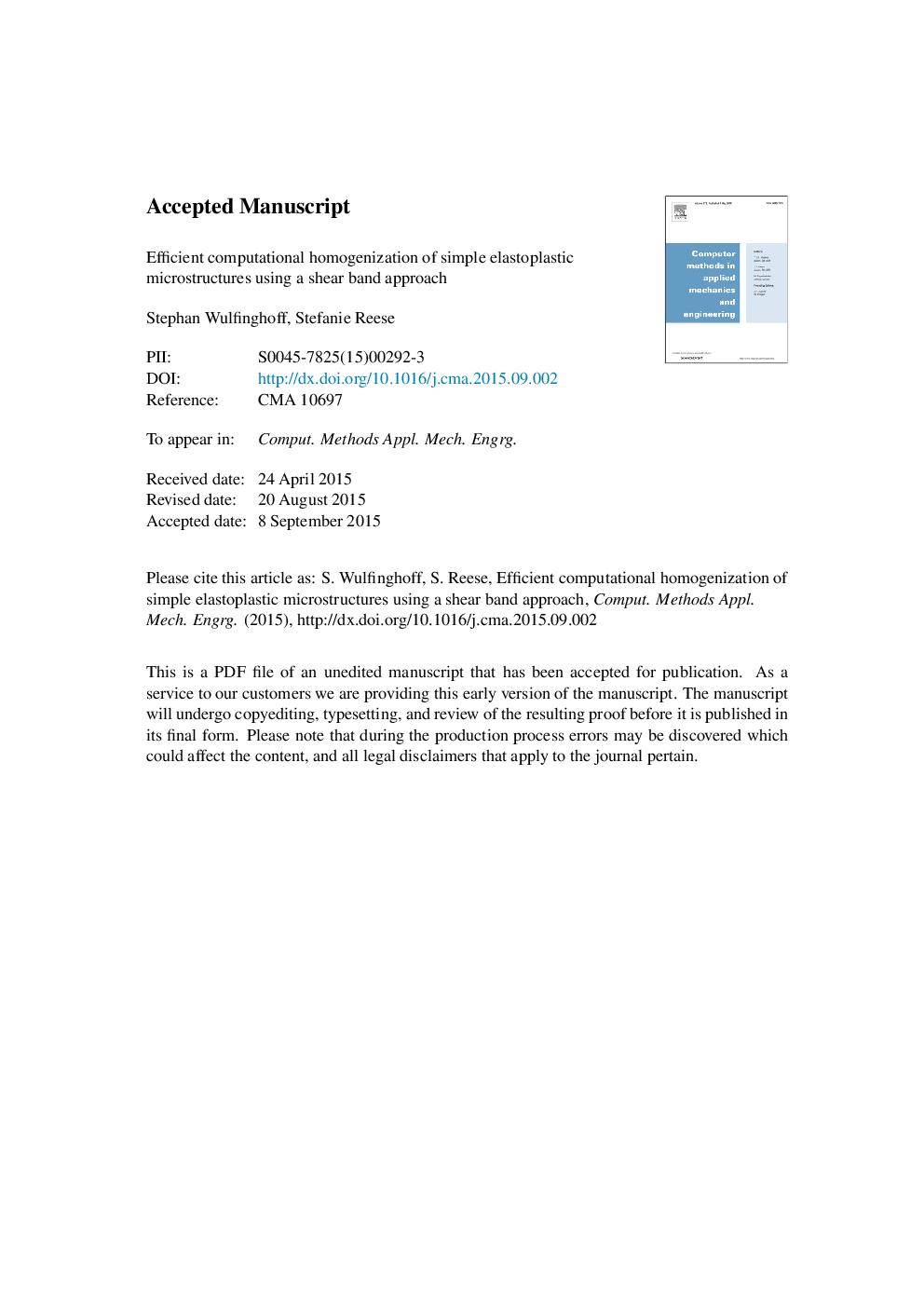| Article ID | Journal | Published Year | Pages | File Type |
|---|---|---|---|---|
| 6916611 | Computer Methods in Applied Mechanics and Engineering | 2016 | 28 Pages |
Abstract
This work presents a numerically efficient approach for the computation of the average stress response of periodic microstructures with simple geometries. The degrees of freedom are given by a small number of shear and tensile deformation modes which are defined on periodic shear bands, leading to a small computational effort. In addition, the number of points where stress computations have to be performed is very small in comparison to the number of evaluation points (usually the Gauss points) of standard finite element analyses. Although the method may be applicable to the three-dimensional case and to many classes of material models, this work is restricted to elastoplastic inclusions embedded in a softer elastoplastic matrix for the geometrically linear, plane strain case. Modifications are proposed to compensate the artificial stress overprediction which is present in almost every standard Ritz-Galerkin approach. The prediction of the model is validated by comparison to finite element simulations for three different microstructural geometries and material pairings.
Related Topics
Physical Sciences and Engineering
Computer Science
Computer Science Applications
Authors
Stephan Wulfinghoff, Stefanie Reese,
